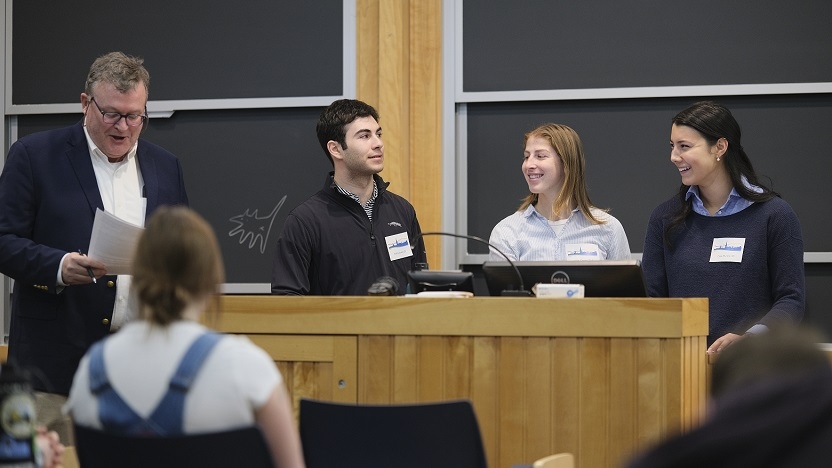Support for Faculty

Are you a faculty member looking to enhance your teaching, learning, and research through community-connected learning?
The Center for Community Engagement ensures equity of access to community-connected learning by increasing civic engagement opportunities inside the classroom. Embedding experiential learning in coursework makes community connection accessible to all students, and benefits our communities by bringing the diverse perspectives of our entire student body to bear on the critical issues with which we engage.
What We Do
The CCE provides faculty members at Middlebury with support and funding to incorporate community-connected learning projects and pedagogy into their classrooms. We apply and support best practices in community-connected teaching, learning, and research.
Our work with faculty helps to create spaces within the classroom and beyond for students to deepen their civic knowledge and practice civic skills, while engaging with big questions about who they are and how they show up with others.
We create and sustain meaningful, ongoing, and reciprocal community partnerships that provide critical context for student learning. CCE staff build connections among community organizations, students, faculty, and staff that promote Middlebury’s educational mission while furthering the development of positive and sustainable communities.
Benefits to Students
- Gain experience by placing their learning in context, seeing first-hand how their academic inquiry connects to real-world problems and opportunities
- Build skills and the understanding of how those skills translate from the classroom, to the community, and ultimately to their work in the world
- Generate new knowledge and questions that inform and sharpen their academic pursuits here at Middlebury, and as lifelong learners and citizens
Benefits to Faculty
- Work with experienced staff educators who can help you develop and design community-based learning opportunities that align with course learning outcomes
- Access pedagogical resources for building course components that optimize community-connected teaching, learning, and research, and reflect best and current practices in experiential learning
- Learn from broad networks and connections in local, national, and global contexts. Our staff draws on extensive existing and emerging relationships with and among a range of sectors that connect across academic disciplines.
Unsure Where to Start?
We can help! We’ll support you to find the best way(s) to integrate community connections into your class or research.
- Sign up for a 30-minute Find Your Place meeting, and we can talk through your options for community-connected teaching, learning, and research.

